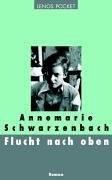

具体描述
In this provocative and wide-ranging study, Douglas Mao argues that a profound tension between veneration of human production and anxiety about production's dangers lay at the heart of literary modernism. Focusing on the work of Virginia Woolf, Wyndham Lewis, Ezra Pound, and Wallace Stevens, Mao shows that modernists were captivated by physical objects, which, regarded as objects, seemed to partake of a utopian serenity beyond the reach of human ideological conflicts. Under a variety of historical pressures, Mao observes, these writers came to revere the making of such things, and especially the crafting of the work of art, as the surest guarantee of meaning for an individual life. Yet they also found troubling contradictions here, since any kind of making, be it handicraft or mass production, could also be understood as a violation of the nonhuman world by an increasingly predatory and imperialistic subjectivity. If modernists began by embracing production as a test of meaning, then they frequently ended by testing production itself and finding it wanting.
To make this case, Mao interweaves social and political history with readings in literature, the visual arts, philosophy, and economics. He explores modernism's relation to aestheticism, existentialism, and the culture of consumption, joining current debates on the politics of engagement and the social meanings of art. And he shows conclusively, in this elegantly written and consistently surprising work, that we cannot understand the theories and practices of modernism without addressing the question of the object and production's ambivalent allure.
作者简介
目录信息
ACKNOWLEDGMENTS xi
INTRODUCTION 3
CHAPTER ONE
Virginia Woolf 26
The Test of Production 26
Even Trees, or Barns 43
Perpetual Combat 58
Battle Scars 78
CHAPTER TWO
Wyndham Lewis 90
Kettles and the Common Life 90
Aesthetes and Apes 103
A Village of One’s Own 115
Nonsensical Will 126
CHAPTER THREE
Ezra Pound 140
Cobwebs and Connoisseurship 140
Laboring in the Tombs 150
The Register of Effort 166
Plus Always Techne 177
CHAPTER FOUR
Wallace Stevens 194
Life’s Extravagance 194
Imposing Forms 212
Notes and Nuances 226
Things Going As Far As They Can 240
NOTES 261
WORKS CITED 285
INDEX 297
· · · · · · (收起)
读后感
评分
评分
评分
评分
用户评价
初读这本书,我最大的感受是它的语言风格极其古典和庄重,仿佛置身于十九世纪的某个沙龙。作者似乎对词汇的精确性有着近乎偏执的追求,每一个形容词都经过了千锤百炼,绝不使用任何多余的赘述。故事的节奏慢得像老式留声机的转速,缓慢而沉稳地推进,重点似乎并不在于“发生了什么”,而在于“如何感受”。我特别喜欢其中关于时间流逝的描绘,那种对瞬间的无限拉伸和对永恒的模糊处理,让人不禁停下来,反思自己与时间的关系。这绝对不是那种快餐式的流行小说,它需要耐心和沉浸感。有些读者可能会觉得节奏拖沓,但我认为正是这种缓慢,才赋予了文字厚重的美感。它就像一幅需要站在远处才能看清全貌的油画,近看细节精致,远观则意境深远。我推荐给那些厌倦了浮躁叙事,渴望被精美文字包裹的读者。
评分这本书的配乐感极强,如果能拍成电影,我立刻就会买票去看。不同章节之间的情绪转换非常剧烈,从开篇的压抑到中段的狂欢,再到结尾近乎虚无的平静,作者对情绪的掌控力令人佩服。我特别喜欢作者用来构建场景的比喻手法,那些关于光影和阴影的对比运用,简直是教科书级别的。例如,当角色身处绝境时,作者会用一种近乎炫目的光芒来反衬内心的黑暗,这种强烈的反差营造出一种既美丽又恐怖的氛围。虽然情节本身有些超现实主义的倾向,但其背后的情感内核却是异常真实的,关于失去和救赎的主题贯穿始终。我读完后,脑海中不断回响着某些关键对白,它们像回声一样持续存在。这本书的价值在于,它不仅仅是讲述了一个故事,更是在观众的心灵上刻下了一层复杂的情感纹理。
评分这本书的叙事结构简直像迷宫一样错综复杂,我花了整整一周的时间才勉强跟上作者构建的世界观。主角的内心挣扎被描绘得淋漓尽致,那种游走在道德边缘的焦虑感,读起来让人手心冒汗。我尤其欣赏作者对于细节的打磨,比如对那个古老机械装置运作原理的细致描述,那种蒸汽朋克式的机械美学,简直让人身临其境。不过,说实话,中间有几段关于量子纠缠的哲学探讨,实在有些晦涩难懂,我感觉自己需要带着一本物理学入门教材才能完全理解作者的意图。整体而言,它更像是一次智力上的攀登,而不是轻松的阅读体验。我喜欢那种被挑战的感觉,它迫使我放慢速度,重新审视每一个句子背后的含义。如果喜欢那种需要深度思考、不提供标准答案的作品,这本书绝对是上乘之作。那种悬念设置得极高明,直到最后一章,我才恍然大悟前面那些看似无关紧要的线索是如何串联起来的,那种“原来如此”的震撼感是无与伦比的。
评分老实说,这本书的结构有点过于野心勃勃了,以至于有些部分读起来像是几部完全不同的作品强行拼凑在一起。前半部分是严谨的家族史诗,充满了家族秘辛和权力斗争的张力,写得非常扎实,人物之间的互动火花四射,我一度以为自己拿到了一部经典的社会小说。然而,当故事进入后半程,突然转入了一种晦涩难懂的符号学解读,大量引用了某些我完全不熟悉的古代神话体系,让阅读体验变得断裂且困惑。我感觉作者在试图表达一个宏大的、跨越多个领域的思想集合,但最终这些碎片化的理念并没有被有效地熔铸成一个统一的整体。尽管如此,我必须承认,即使是那些我感到困惑的部分,也透露出作者非凡的学识背景。这本书更像是一个知识的宝库,只是里面的地图有些混乱,需要读者自己去绘制连接线。
评分这本书的对话简直妙不可言,每一个角色都有自己独特的声音和节奏,几乎不需要看名字标注,我就能判断出是谁在说话。作者对人物性格的刻画是极其细腻的,尤其擅长通过角色的言语习惯来揭示其隐藏的动机和不安。我最欣赏的是,即便是最卑微的小人物,其台词中也蕴含着深刻的洞察力,这让整部作品充满了人文关怀的色彩。虽然整体情节的推进速度并不快,但那些充满张力的对话场景足以让人屏息凝神。其中有一场关于“真实与虚假”的辩论戏,简直是文字交锋的典范,每一个反驳和自辩都滴水不漏,让人拍案叫绝。这本书的价值在于它对人类交流复杂性的深刻挖掘,它证明了最好的冲突往往不需要物理上的打斗,仅仅通过语言的交锋就能达到极高的戏剧效果。读完后,我甚至开始模仿书里角色的说话方式,可见其感染力之强。
评分 评分 评分 评分 评分相关图书
本站所有内容均为互联网搜索引擎提供的公开搜索信息,本站不存储任何数据与内容,任何内容与数据均与本站无关,如有需要请联系相关搜索引擎包括但不限于百度,google,bing,sogou 等
© 2026 book.wenda123.org All Rights Reserved. 图书目录大全 版权所有




















